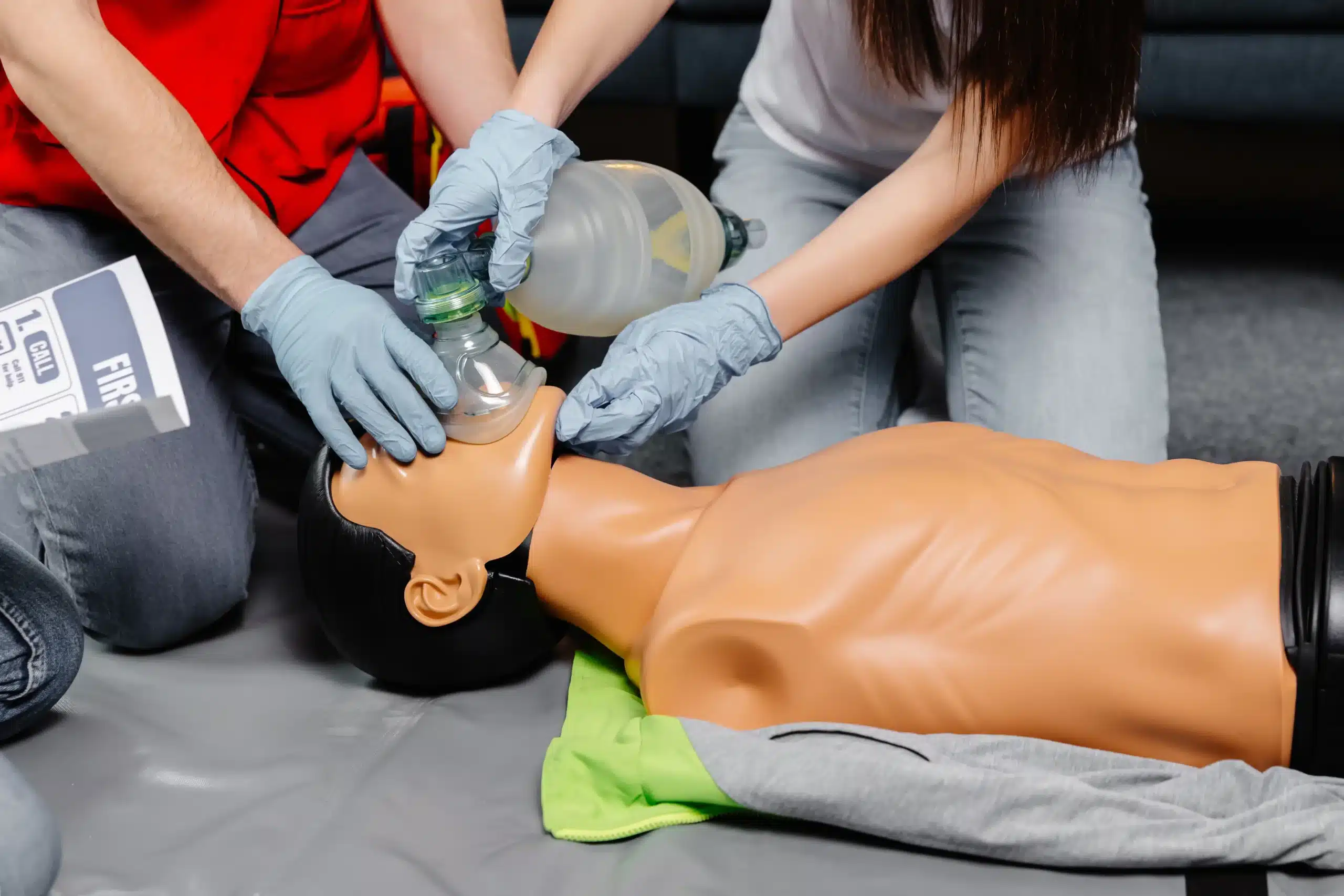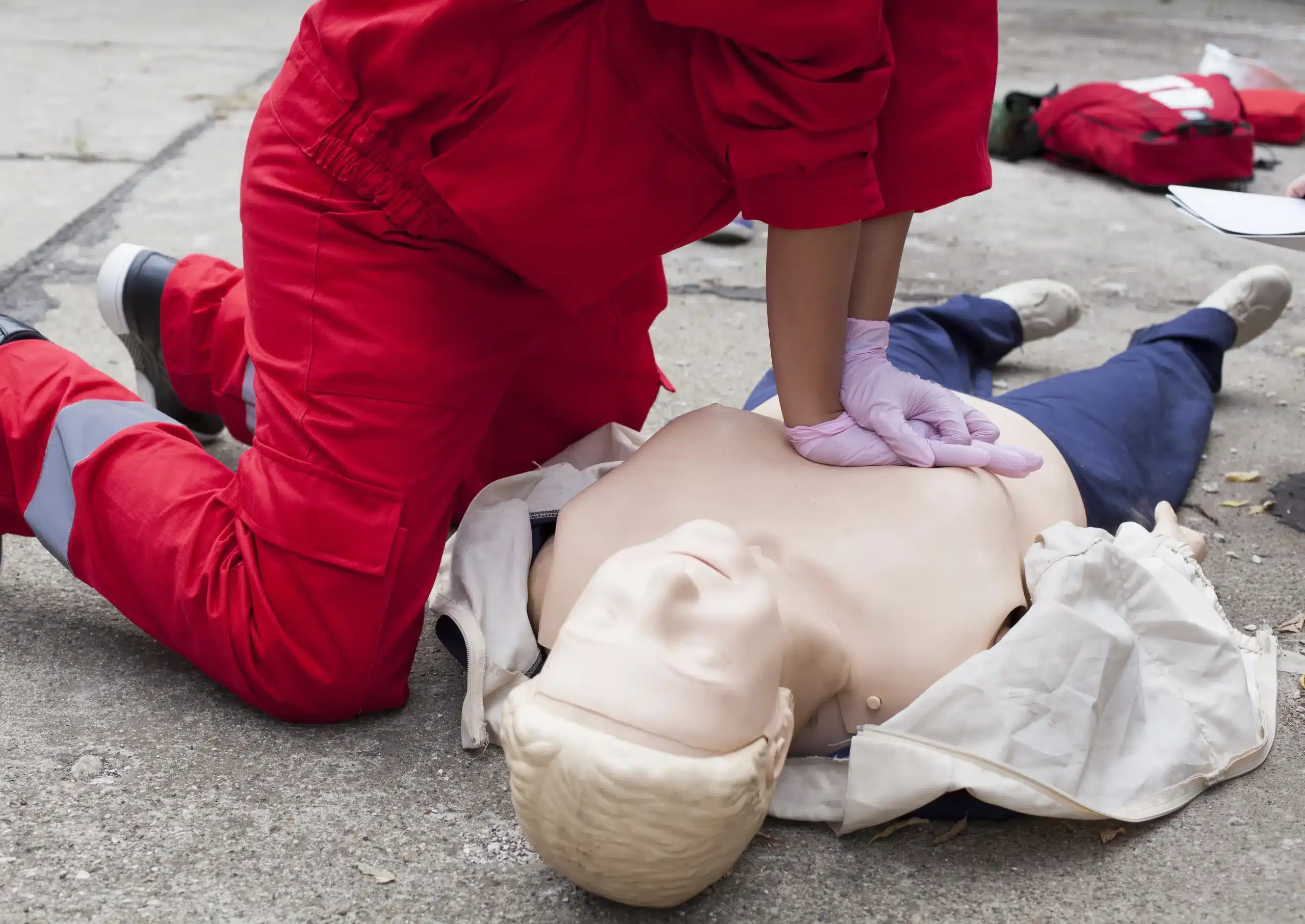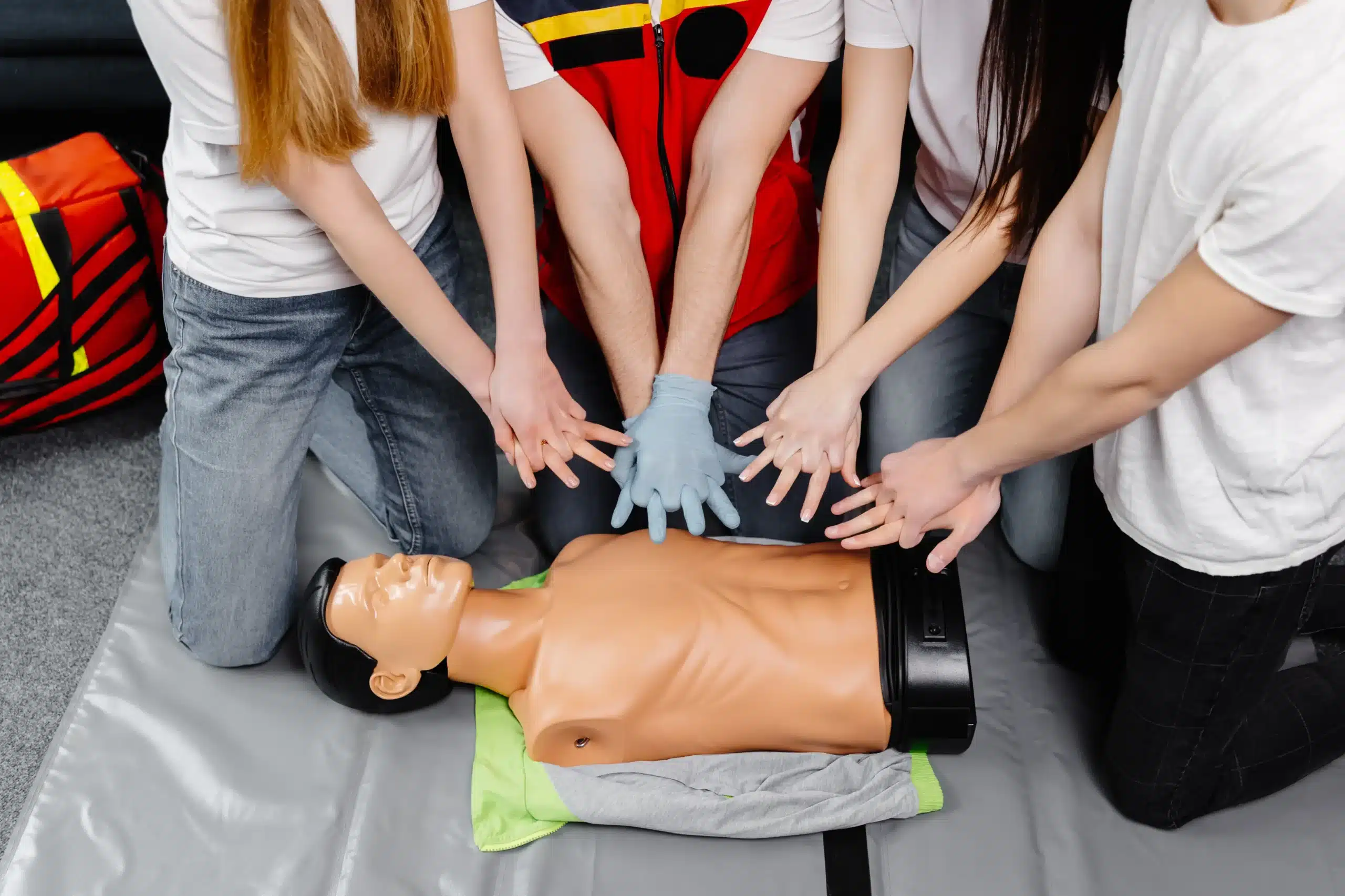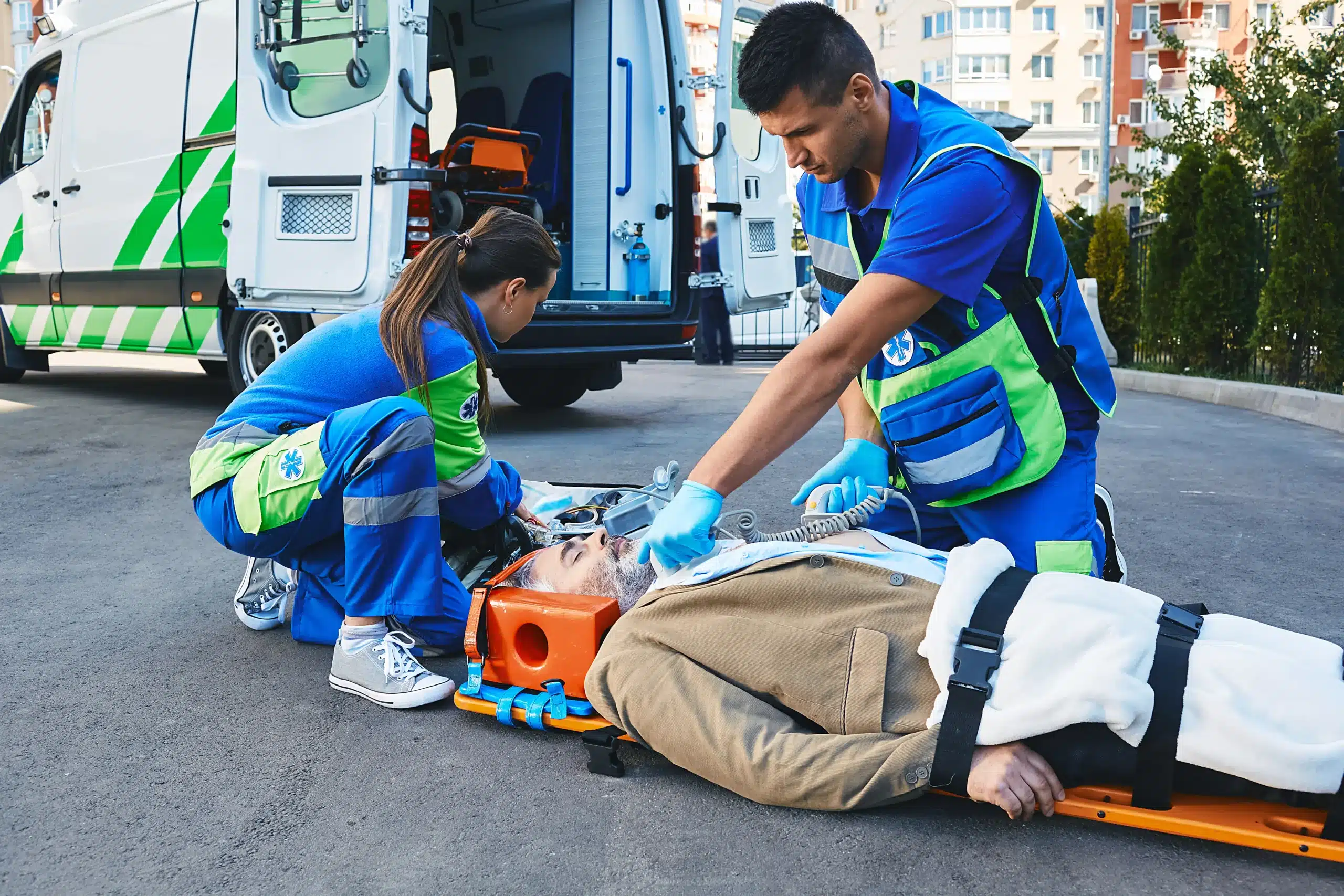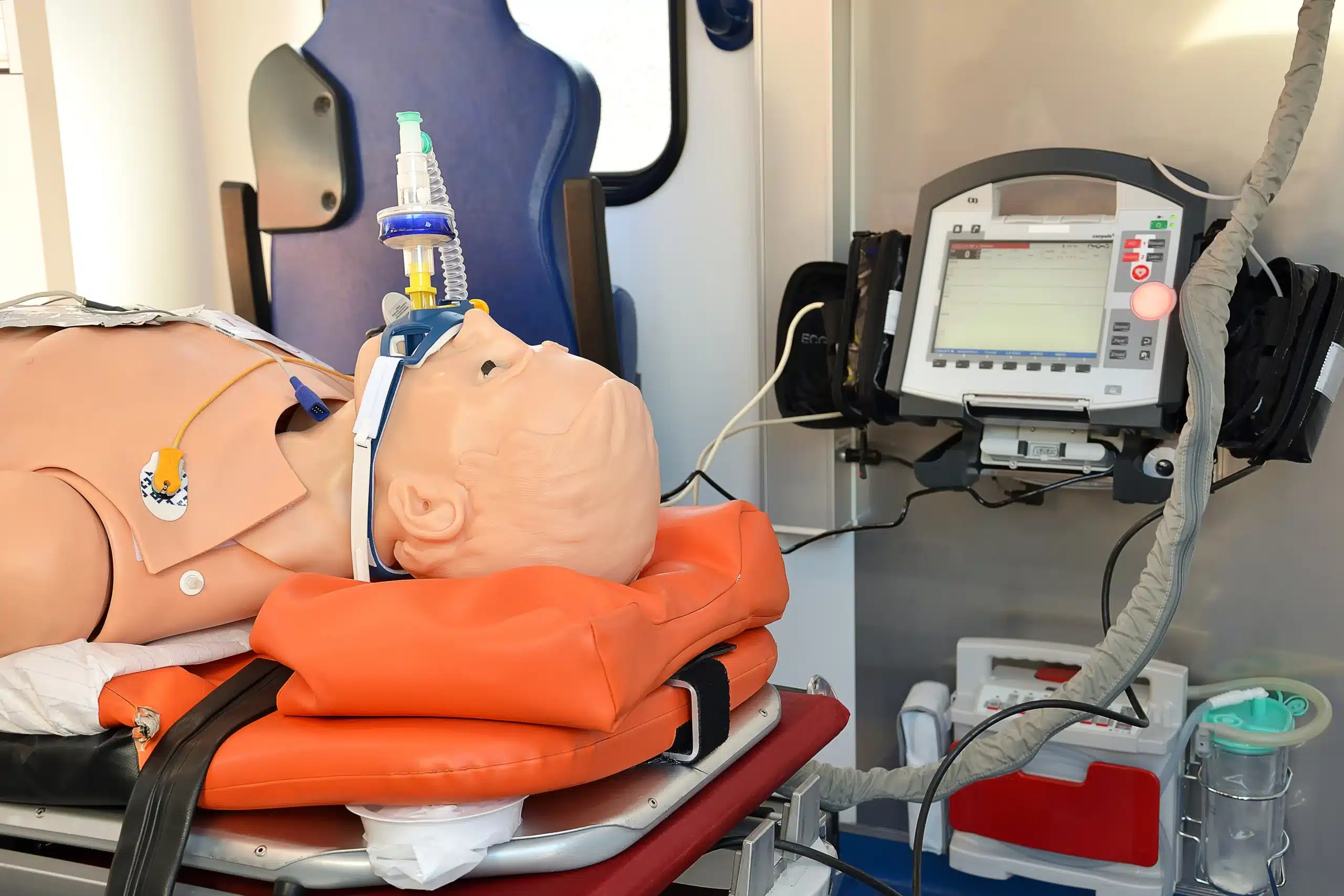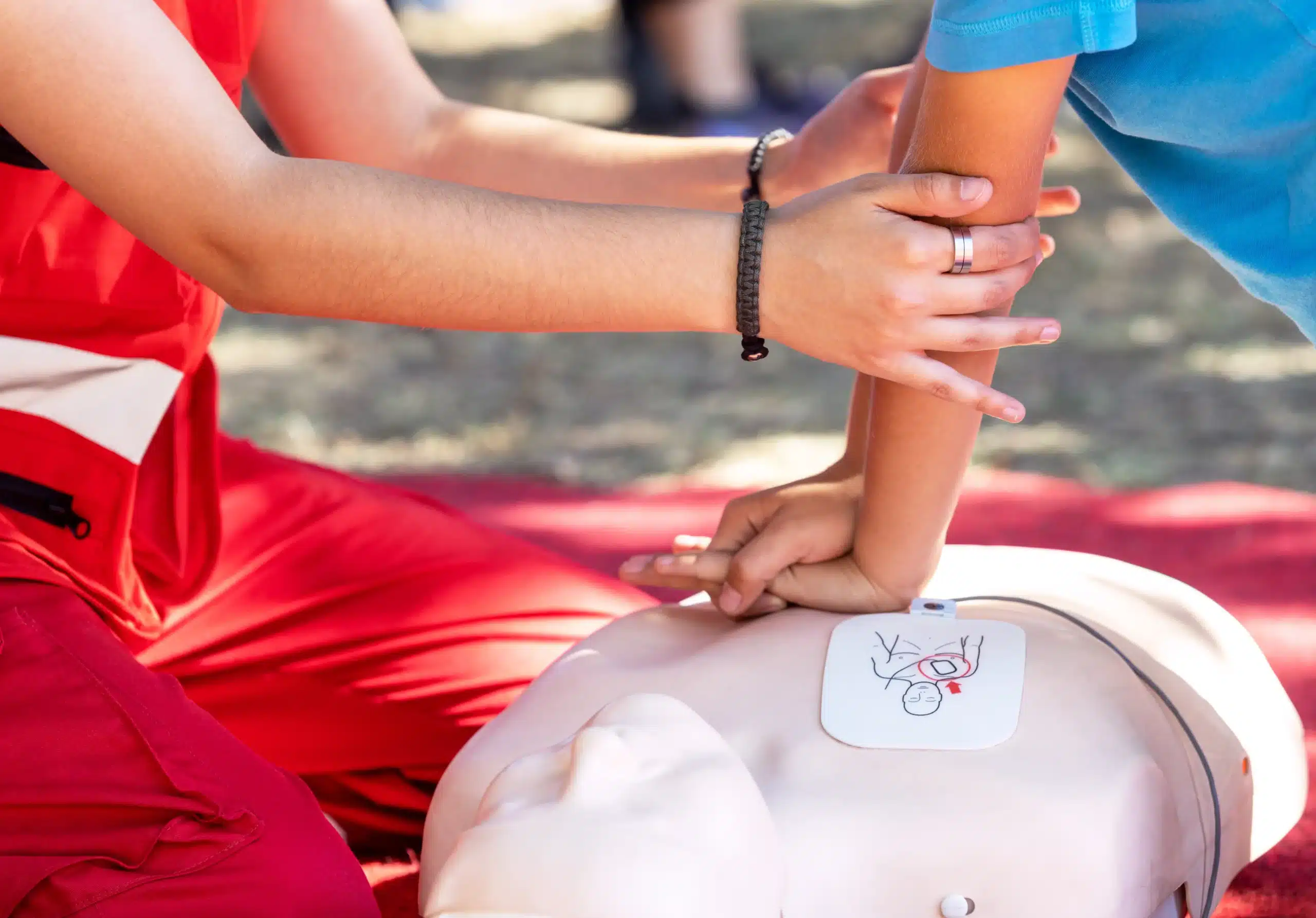Working in healthcare, especially with children, means being ready for anything. From minor injuries to life-threatening emergencies, you need the skills and confidence to act quickly. That’s where Pediatric Advanced Life Support (PALS) training comes in. If you’re a healthcare provider in Tracy, PALS certification is more than just a credential—it’s a lifeline. It empowers you to provide the best possible care for young patients during critical moments. This comprehensive guide explores everything you need to know about pediatric advanced life support in Tracy, from course content and certification to the profound impact it has on pediatric care. Let’s dive in and discover how PALS can enhance your skills and contribute to a safer environment for the children in your care.
Key Takeaways
- PALS certification equips you to handle pediatric emergencies: This specialized training provides the knowledge and skills needed to confidently manage critical situations involving infants and children, leading to improved patient outcomes.
- Find convenient and comprehensive PALS training in Tracy: Tracy CPR Classes offers flexible scheduling options, various course formats, and potential cost savings through group discounts and package deals.
- Stay current with the latest advancements in pediatric care: Maintain your PALS certification through regular renewal and continuing education opportunities to ensure you’re providing the best possible care for young patients.
What is Pediatric Advanced Life Support (PALS)?
What is PALS and why is it important?
Pediatric Advanced Life Support (PALS) is specialized training designed to equip healthcare professionals with the skills to respond to pediatric emergencies. These emergencies can range from respiratory distress and shock to cardiac arrest. PALS certification is crucial for medical providers like doctors, nurses, paramedics, and respiratory therapists who work with infants and children. This specialized training ensures they can provide excellent care during critical situations. It emphasizes a systematic approach to assessment, intervention, and stabilization, increasing the chances of positive outcomes. If you’re a healthcare provider in Tracy, consider a PALS certification course to enhance your skills and contribute to a safer environment for children.
Key skills and techniques taught in PALS training
PALS training covers essential skills and techniques for managing pediatric emergencies. The program explores the physiological differences between children and adults, impacting emergency care. PALS courses teach airway management techniques specific to infants and children, including advanced interventions. Participants learn to recognize and manage different types of shock, administer medications, and perform pediatric CPR. The training emphasizes teamwork and communication during emergencies, ensuring coordinated responses. PALS training also addresses post-resuscitation care, focusing on stabilizing the child and preparing for ongoing treatment. Mastering these skills allows healthcare professionals to handle pediatric emergencies and provide the highest level of care.
PALS Certification Classes in Tracy
PALS certification classes in Tracy, California, equip healthcare providers with the skills to respond to pediatric emergencies. These courses, often based on the American Heart Association’s curriculum, cover everything from basic life support to advanced interventions. Let’s explore what these classes entail.
Course structure and components
PALS courses blend theoretical learning with hands-on practice. You’ll learn key concepts like airway management, rhythm recognition, and effective team dynamics. The PALS courses cover core components of pediatric emergency care, providing a solid foundation for responding to critical situations. Expect interactive sessions, case studies, and simulations designed to reinforce your learning and build confidence.
Online and in-person options
Busy schedules? No problem. PALS training offers flexible learning options. PALS HeartCode blends online coursework with an in-person skills session. This approach allows you to study the material at your own pace and then demonstrate your skills to a certified instructor. Traditional in-person classes are also available if you prefer a classroom setting.
Duration and prerequisites
PALS courses typically require around eight hours to complete, including hands-on practice. While there aren’t strict prerequisites for PALS certification, a background in healthcare is helpful. Certification is typically valid for two years. After that, you’ll need to recertify to stay current with the latest guidelines and maintain your credentials.
Cost & Value of PALS Certification
Investing in Pediatric Advanced Life Support (PALS) training is an investment in children’s lives. Understanding the associated costs and the immense value it brings can help you make informed decisions.
PALS Course Pricing
PALS certification courses vary in price depending on the training center and location. For instance, Tracy CPR Classes offers a comprehensive PALS course, including the online component, skills testing, and certification card, for $290. This bundled approach streamlines the process and ensures you receive all necessary training elements.
Group Discounts and Package Deals
If you’re training multiple staff members or belong to a larger organization, explore potential cost savings through group discounts. Many providers, including Tracy CPR Classes, offer discounted rates for group training. We also provide various certification classes, including CPR, BLS, ACLS, PALS, and First Aid, and often have package deals that combine these courses. Check with us or your local training center to see what options are available.
Long-term Benefits for Healthcare Professionals
The value of PALS certification extends far beyond the initial training cost. For healthcare professionals, PALS is a crucial skill set that equips you with the knowledge and techniques to handle pediatric emergencies. This specialized training enhances your ability to respond confidently to critical situations involving children, ultimately leading to improved patient outcomes. PALS training also contributes significantly to your ongoing professional development, ensuring you stay competent and confident in providing the best possible care for young patients. The ability to respond effectively in a crisis can have a profound impact on a child’s life, making PALS an invaluable asset in your career. Learn more about why PALS certification is crucial for healthcare providers.
PALS Class Schedules & Enrollment
Flexible Scheduling Options
We understand that balancing work, family, and other commitments can make finding time for professional development a challenge. That’s why Tracy CPR Classes offers PALS courses seven days a week. We know convenient scheduling is essential, so we provide PALS training in Tracy and nearby cities daily. Our classes are taught by experienced, AHA-certified instructors, ensuring you receive top-notch training that adheres to American Heart Association standards. This flexible approach allows you to select a class time that works for you, whether it’s a weekday evening or a weekend.
How to Enroll in a PALS Course
Ready to refine your pediatric life support skills? Enrolling in a PALS course is simple. Visit the Tracy CPR Classes website to see the upcoming PALS classes and register. The site is user-friendly, making it easy to find the perfect PALS course in Tracy, CA. For healthcare providers seeking to improve their pediatric emergency care, enrolling in a PALS course is an important first step.
What Happens During PALS Certification?
Earning your PALS certification involves two key steps: online coursework and an in-person skills session. This blended learning format allows you to learn at your own speed and receive personalized feedback.
Online Learning Component
The online portion covers essential PALS concepts and procedures, including core algorithms and best practices for pediatric emergencies. This self-directed learning allows you to review materials as needed and test your knowledge before demonstrating your skills in person. PALS HeartCode offers a flexible way to build a strong foundation.
Hands-on Skills Testing
After completing the online coursework, you’ll participate in a hands-on skills session. This session focuses on practical application and skill demonstration. Instructors guide you through various pediatric emergency scenarios, providing real-time feedback and ensuring you’re comfortable performing essential techniques. Tracy CPR Classes are designed to build confidence in managing pediatric emergencies.
Common Scenarios and Emergencies Covered
PALS certification prepares healthcare providers to handle a wide range of pediatric emergencies. You’ll learn to recognize and respond to respiratory distress, cardiac arrest, shock, and other life-threatening conditions. The training also covers essential skills like airway management, intravenous access, and medication administration. PALS certification equips individuals with the skills to respond effectively to emergencies involving children and infants, addressing common pediatric health complications.
Maintain Your PALS Certification
Keeping your PALS skills sharp is crucial for providing the best possible care to young patients. This section covers how to maintain your PALS certification and stay on top of the latest advancements in pediatric emergency care.
Renewal Requirements and Frequency
PALS certification, like many healthcare certifications, isn’t permanent. It’s typically valid for two years. After this period, you’ll need to renew your PALS certification to ensure your knowledge and skills align with current guidelines. This recertification is essential for healthcare providers to stay informed about evolving best practices and maintain a high standard of patient care.
Continuing Education Opportunities
Beyond recertification, continuing education plays a vital role in professional development. You have many options to expand your knowledge and refine your skills in pediatric emergency care. Advanced courses and refresher training sessions offer a deep dive into specific topics and techniques. The American Heart Association offers a range of continuing education resources, including PALS courses, to support healthcare providers. These opportunities allow you to build upon your existing PALS training and enhance your ability to manage pediatric emergencies effectively. Staying current with the latest advancements ensures you’re equipped to provide the highest quality care for your young patients.
PALS vs. Other Certifications
Comparing PALS, ACLS, and BLS
PALS (Pediatric Advanced Life Support) focuses on life-threatening emergencies specifically involving infants and children. It gives healthcare providers the knowledge and skills to assess, stabilize, and treat young patients in critical conditions. ACLS (Advanced Cardiovascular Life Support) addresses a broader range of cardiac and respiratory emergencies in adults. Think of PALS as the pediatric version of ACLS. Basic Life Support (BLS) teaches fundamental life-saving techniques, including CPR, for anyone who wants to help in an emergency, regardless of their medical background. BLS is a crucial first step, but it doesn’t cover the advanced interventions found in PALS or ACLS. Understanding the differences between CPR, ACLS, and PALS is important when choosing the right certification. PALS certification goes beyond basic CPR training, equipping individuals with specialized skills to manage pediatric emergencies effectively. It addresses the unique physiological differences between children and adults, offering tailored interventions for respiratory distress, shock, and cardiac arrest in younger patients. PALS certification is key for healthcare professionals working with children.
How these certifications complement each other
These certifications work together to create a well-rounded approach to emergency care. BLS provides the fundamental skills essential for any healthcare provider. PALS and ACLS offer specialized training for specific patient populations. Many healthcare professionals pursue multiple certifications to expand their skillset and provide optimal care. PALS builds upon the foundational knowledge of BLS, adding advanced techniques and strategies for pediatric emergencies. This layered approach ensures healthcare providers are prepared to handle various situations. The PALS training program explores the specific physiology and health complications that can arise in children, providing a deeper understanding of pediatric emergencies. This specialized knowledge allows providers to make informed decisions and deliver targeted interventions. Combined with BLS and ACLS, PALS creates a comprehensive skillset. Preparing for the challenges of PALS certification can help individuals understand the rigorous training and testing involved. PALS certification is a valuable asset for any healthcare provider working with children.
Top PALS Training Providers in Tracy
Finding the right Pediatric Advanced Life Support (PALS) training provider is crucial for healthcare professionals who want to deliver the best possible care in pediatric emergencies. Here are a few reputable options in the Tracy area:
Tracy CPR Classes
Tracy CPR Classes offers PALS training aligned with the American Heart Association (AHA) guidelines. These courses are designed for healthcare providers seeking to refine their skills in managing pediatric emergencies. They emphasize a hands-on approach, providing practical experience to build confidence. Learn more about their PALS courses.
American Heart Association Training Centers
The AHA provides comprehensive PALS training in Tracy, equipping healthcare professionals with the knowledge and skills to handle pediatric emergencies. These courses are known for their high standards and practical focus, ensuring you receive a thorough education. Tracy CPR Classes can connect you with more information on local AHA PALS training.
Red Cross Training Centers
The American Red Cross also offers a PALS certification program designed to be scientifically sound and comprehensive. Their courses are tailored for healthcare providers wanting to improve their emergency response skills in pediatric care. Explore the Red Cross PALS program for more information.
Common PALS Misconceptions
Addressing myths about PALS training
There are a few common misconceptions about Pediatric Advanced Life Support (PALS) training. One is that it’s only for professionals working in hospitals or emergency rooms. The truth is, PALS certification equips anyone who works with children—camp counselors, school nurses, daycare providers—with the skills to respond to emergencies. Think of it as a crucial safety net, providing the knowledge and confidence to act quickly when a child’s life is on the line. Another misconception is that PALS is the same as Basic Life Support (BLS). While BLS provides a foundation, PALS training builds upon those skills, delving into more advanced techniques specifically for pediatric patients. Finally, some experienced healthcare providers believe they don’t need PALS training. Regular training ensures everyone stays up-to-date and maintains those crucial skills, as guidelines and best practices can change. At Tracy CPR Classes, we address these misconceptions head-on, providing clear, comprehensive PALS training that empowers individuals to provide the best possible care.
Strategies for skill retention and practice
Just like any skill, PALS requires regular practice. Consistent review and hands-on practice are essential for maintaining proficiency. Regularly reviewing airway management protocols, a critical aspect of PALS, is one effective strategy. Practicing these skills ensures you can respond effectively in a real-life emergency. Working through simulated scenarios is another valuable approach. These simulations offer a safe environment to practice complex situations, improving critical thinking and decision-making under pressure. Tracy CPR Classes incorporates these strategies into our training programs, offering resources and opportunities for ongoing practice and skill development. We also encourage students to explore additional resources like the Northern CA CPR Directory to find continuing education opportunities.
PALS Training’s Impact on Pediatric Care
Improved Emergency Response
PALS certification gives healthcare providers the knowledge and skills to confidently manage pediatric emergencies. This specialized training is crucial for professionals, preparing them to handle life-threatening situations involving children and infants. By working through complex scenarios in PALS training, participants learn to stay calm and focused under pressure, ultimately improving patient outcomes during real emergencies. This focused training allows providers to quickly assess, stabilize, and treat young patients, minimizing the impact of critical situations. For a deeper look at common misconceptions about PALS certification, check out these insights on PALS Certification.
Enhanced Teamwork and Communication
The PALS training program helps professionals understand the specifics of physiology and health complications in children. This specialized knowledge creates a foundation for better communication and collaboration among healthcare teams. As professionals go through PALS training, they develop a shared understanding of pediatric emergencies. This common ground enhances their ability to work together efficiently in high-pressure situations, ensuring everyone is prepared to contribute effectively to patient care. Comfikare CPR offers additional perspectives on the challenges and benefits of PALS certification. This teamwork fostered by PALS training creates a more coordinated and effective response, improving the chances of positive outcomes for young patients.
Related Articles
- PALS Certification in Lodi: Your Complete Guide – Tracy CPR Classes
- PALS HeartCode Tracy: Your Certification Guide – Tracy CPR Classes
- Online PALS Classes in Lodi: Your Certification Guide – Tracy CPR Classes
- Online PALS Classes in Tracy: Your Certification Guide – Tracy CPR Classes
- AHA PALS Classes in Tracy, CA – Tracy CPR Classes
Frequently Asked Questions
Is PALS certification right for me?
PALS is designed for healthcare providers who interact with infants and children. If you’re a doctor, nurse, paramedic, respiratory therapist, or other healthcare professional working with young patients, PALS can significantly enhance your emergency response skills. Even if you don’t work directly in a hospital setting, if your role involves childcare or youth programs, PALS training can provide valuable skills to respond to emergencies effectively.
What’s the difference between PALS and BLS?
BLS (Basic Life Support) teaches fundamental life-saving techniques like CPR. PALS (Pediatric Advanced Life Support) builds upon this foundation, focusing on the specialized skills needed to manage pediatric emergencies. PALS delves into advanced techniques for airway management, medication administration, and recognizing and treating conditions specific to infants and children.
How long does PALS certification last, and how do I renew it?
PALS certification is typically valid for two years. To renew, you’ll need to complete a recertification course before your current certification expires. This ensures your knowledge and skills are up-to-date with the latest guidelines. Recertification courses cover any updates to procedures and protocols, ensuring you can continue providing the highest quality care.
What can I expect during a PALS course?
PALS courses combine online learning with in-person skills sessions. The online portion allows you to learn at your own pace, covering essential concepts and procedures. The in-person session focuses on practical application, where you’ll practice skills like airway management and demonstrate your proficiency in simulated emergency scenarios. This blended approach ensures you have a strong theoretical understanding and the practical skills to respond effectively.
How much does PALS certification cost, and are there any discounts available?
The cost of PALS certification varies depending on the training center and location. Many providers offer group discounts, so if you’re training multiple staff members, it’s worth inquiring about potential cost savings. Some training centers also offer package deals that combine PALS with other certifications like BLS or ACLS, which can be a cost-effective way to gain multiple credentials.
